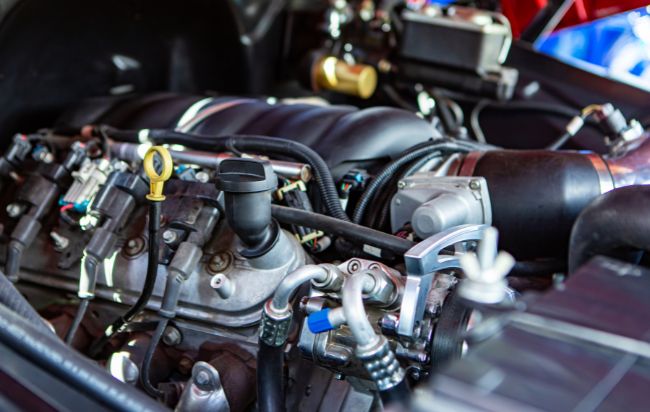
While engine tune-ups have been around for decades, their purpose and what’s involved in a service appointment has significantly changed over the years.
Initially, tune-ups pertained to the ignition and fuel system, replacing or repairing parts to enhance performance and efficiency. Today, visits also include checking the spark plugs, air filters, timing belt, oil, fluids and tires.
What’s a Modern-Day Engine Tune-Up?
A technician will inspect and run tests on the fuel, ignition and emission systems. Key parts that can impact perform and affect system readings will also be assessed, including sensors and hoses.
The engine has hundreds of components, many that can affect the vehicle’s power, airflow and fuel economy. Regular driving can place a significant amount of wear on these parts and influence how your car performs over time.
Factors like dirty filters, clogged injectors and old, corroded spark plugs throw off the combustion process. When this occurs, your car requires more gas to perform what it could on a lesser amount. Regular maintenance appointments replace or repair these damaged parts so your car runs more efficiently, smoothly and generates fewer emissions.
According to your car’s maintenance schedule, not every inspection will be the same. For example, spark plugs should be replaced every 100,000 miles and the engine air filter every 30,000 miles. Check your owner’s manual to determine how often you should be scheduling maintenance visits and the mileage at which specific parts or systems need to be addressed.
Signs Your Engine Needs a Tune-Up
While tune-ups can extend your vehicle’s lifespan, repairs may be needed before these maintenance visits. Consider scheduling a tune-up if:
- Miles per gallon rate are decreasing
- The engine feels like it has less power
- Your engine stalls or makes noise at a stoplight
- You notice a clunking or pinging sound when you accelerate
- The check engine light has turned on and won’t shut off
Engine Tune-Up Services
Ultimately, engine tune-up services follow your maintenance schedule. Yet if you notice any of the above signs, our technicians will use diagnostic equipment to examine your vehicle’s computer data and identify specific issues related to operations or emissions. Parts will also be physically examined for wear, particularly the spark plugs, rotor and cap. After results are received:
- The cap, spark plugs, air and fuel filters, valves, rotor or wires may be replaced
- The oil and other fluids may be changed
- Sensors, the timing belt or chain and other engine components may be replaced
- The clutch, idle and timing settings may be adjusted
- Your battery’s performance will be assessed
Following all repairs, we’ll schedule a follow-up service appointment based on mileage. As the car’s owner, continue with the schedule specified in your manual and make appointments based on these particular milestones.
To determine why your engine performance has decreased, contact our Naugatuck shop today.

